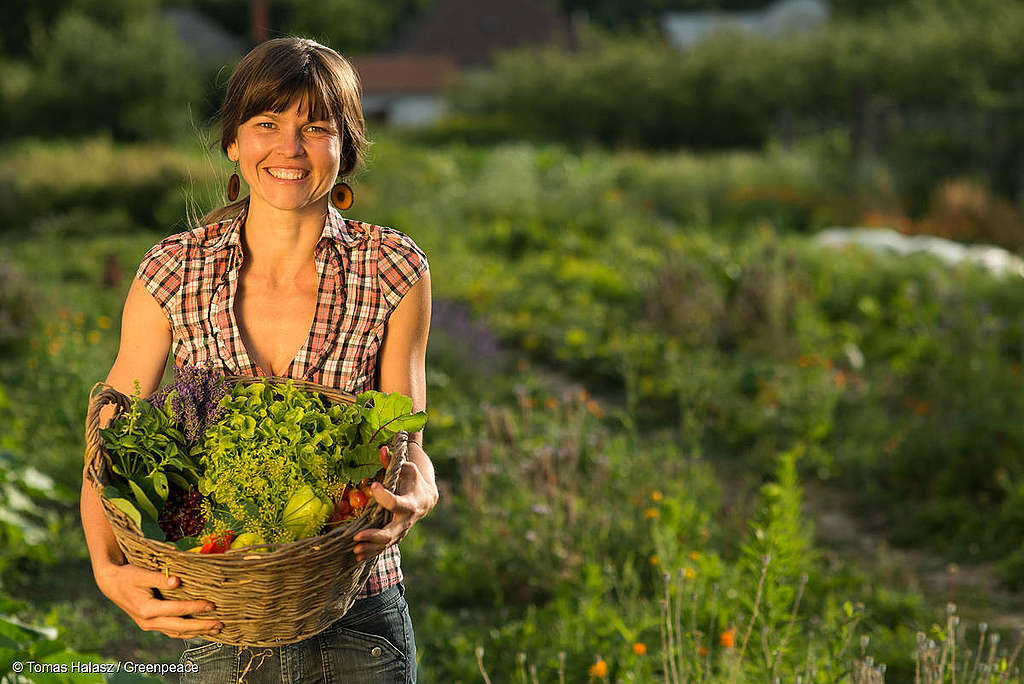
The EU and European national governments must save small farmers but block any support for industrial animal farming in rescue packages or other public subsidies, to lower the risk of future pandemics, says Greenpeace. Agriculture industry lobbyists have already called for support for the meat and dairy sector.
Industrial animal farming has a well-recognised role in the emergence and spread of viral infections similar to Covid-19. An estimated 73% of all emerging infectious diseases originate in animals, and livestock species transmit an extraordinary number of viruses, like coronaviruses and influenza viruses, to humans. Factory farming, especially of animals like poultry and pigs where animals are kept in very high numbers and close contact, and traded across big distances, is likely to increase disease transmission.
Animal farming is also the main driver of global forest destruction, and researchers estimate 31% of outbreaks of emerging diseases are linked to land use change – including HIV, Ebola and Zika, connected to human encroachment on tropical rainforests.
Marco Contiero, Greenpeace EU agriculture policy director, said: “Industrial animal farming and the forest destruction it drives to grow feed are the perfect toxic recipe for future pandemics. If we keep pushing wild animals into contact with people, and providing cramped factory farms as breeding grounds, Covid-19 won’t be the last outbreak we suffer. The EU and national governments must save the small farmers hurt by this crisis, and stop backing the factory farms that put public health at risk.”
Professor Ilaria Capua, prominent Italian virologist and director of the One Health Center of Excellence, University of Florida, stresses that our human health is inextricably linked to the health of animals and nature. There will only be a healthy planet and a healthy life for us if we drastically change how we treat other living beings, including animals in factory farms.
Professor Capua said: “Co-advancing the health of humans and other animals, together with that of plants and of the environment is the only way to maintain and preserve the planet’s sustainability.”
The animal farming sector under the current European farm policy already receives, directly and indirectly via feed production, between €28-€32 billion per year in EU public subsidies, 18-20% of the EU’s total budget. The vast majority of these payments support Europe’s largest farms, which provide over 72% of animal products in the EU, while smaller animal farms keep disappearing. Almost 3 million animal farms closed down between 2005 and 2013, nearly a third of all EU farms.
Greenpeace is urging the EU and national governments to ensure a just and fair transition by providing financial aid first and foremost to local, small-scale and ecological farmers who ensure healthy and resilient food production, as well as to farm workers who may be at risk of losing their livelihoods.
Aside from infectious diseases, industrial animal farming contributes to other health problems, from polluting air with ammonia and water with nitrogen, to the spread of antimicrobial resistance – one of the main health challenges of the 21st century responsible for 33,000 deaths annually in Europe, and with predicted ten million deaths a year globally by 2050 if not mitigated. In addition, meat-heavy diets are associated with many serious health problems including cardiovascular diseases, cancer and type 2 diabetes. A study by the health journal The Lancet recommends cutting red meat consumption in Europe by 77% to ensure sustainable, healthy diets. A healthy diet, rich in fruits and vegetables is a good way to support the immune system.
